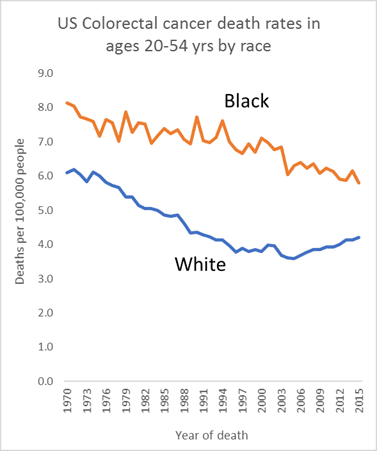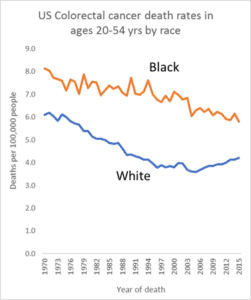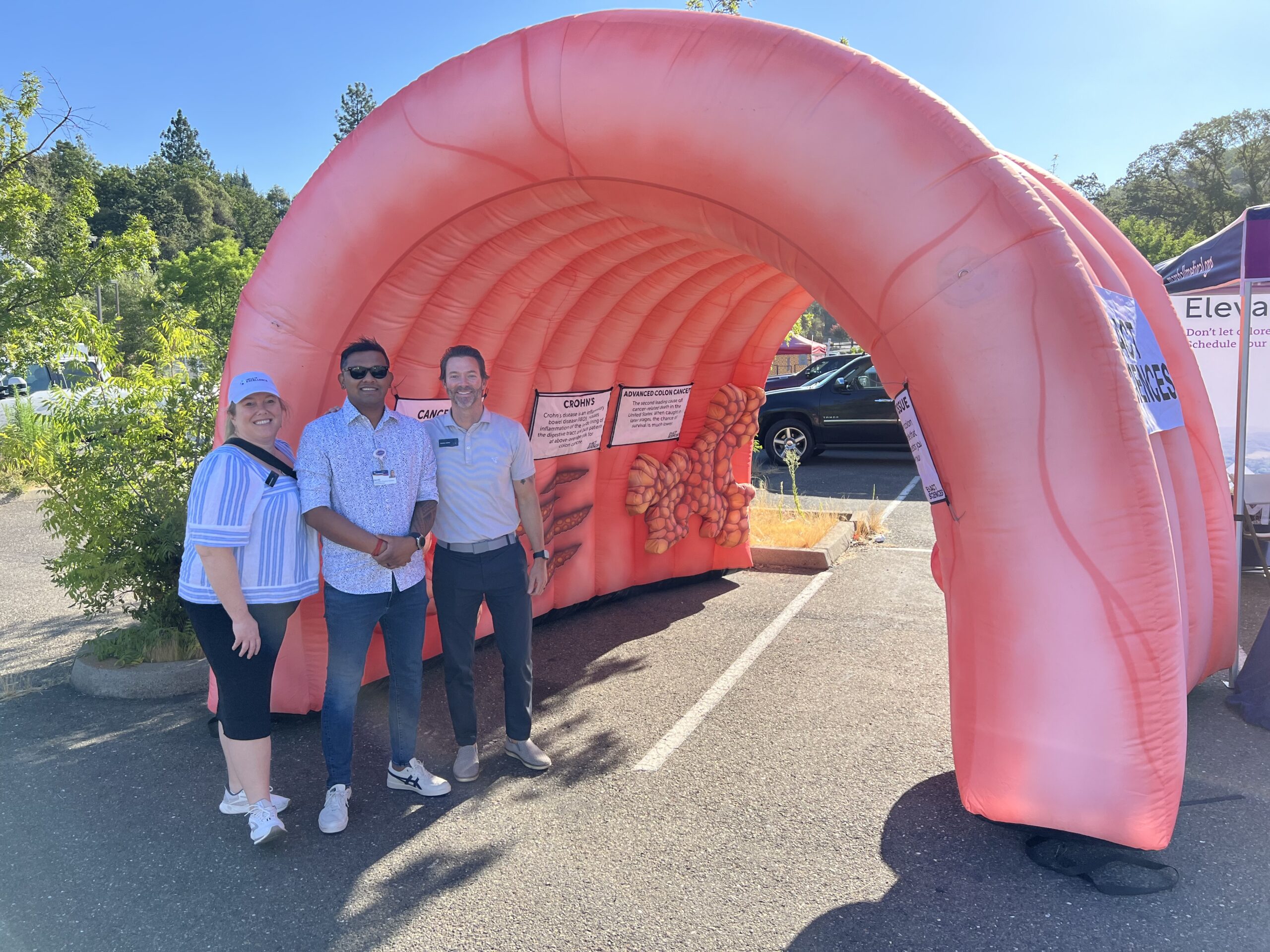CRC Death Rates Rising in People Under 55

 A new report finds that colorectal cancer mortality rates have increased in adults under 55 since the mid-2000s after falling for decades, strengthening evidence that previously reported increases in incidence in this age group are not solely the result of more screening. The rise was confined to white individuals according to the report, which appears in the Journal of the American Medical Association.
A new report finds that colorectal cancer mortality rates have increased in adults under 55 since the mid-2000s after falling for decades, strengthening evidence that previously reported increases in incidence in this age group are not solely the result of more screening. The rise was confined to white individuals according to the report, which appears in the Journal of the American Medical Association.
As reported previously by American Cancer Society investigators, colorectal cancer (CRC) incidence has been increasing in the United States among adults younger than 55 years since at least the mid-1990s. The increase thus far is confined to white men and women and is most rapid for metastatic disease. CRC mortality overall is declining rapidly, masking trends in young adults, which have not been comprehensively examined.
For the current study, ACS investigators led by Rebecca Siegel, MPH analyzed CRC mortality among persons aged 20 to 54 years by race from 1970 through 2014 using data from the National Center for Health Statistics, representing more than 99% of deaths in the United States. The analysis included 242,637 people ages 20 to 54 who died from CRC between 1970 and 2014.
CRC mortality rates among those ages 20 to 54 declined from 6.3 per 100,000 in 1970 to 3.9 in 2004, at which point mortality rates began to increase by 1.0% annually, eventually reaching 4.3 per 100,000 in 2014. The increase was confined to white individuals, among whom mortality rates increased by 1.4% per year, from 3.6 in 2004 to 4.1 in 2014. Among black individuals, mortality declined throughout the study period at a rate of 0.4% to 1.1% annually (from 8.1 in 1970 to 6.1 in 2014). Among other races combined, mortality rates declined from 1970-2006 and were stable thereafter.
While mortality remained stable in white individuals ages 20 to 29 from 1988-2014, it increased from 1995-2014 by 1.6% per year in those ages 30 to 39 years, and from 2005-2014 by 1.9% per year for those ages 40 to 49 years and by 0.9% per year for those ages 50 to 54 years. Conversely, rates declined in black individuals in every age group. The authors note that these disparate racial patterns are inconsistent with trends in major risk factors for CRC like obesity, which is universally increasing.
The authors say rising CRC mortality in people in their 50s was particularly unexpected because screening, which can prevent cancer as well as detect it early, when it is more curable, has been recommended starting at age 50 for decades. Screening prevalence has increased for all age groups over 50, but is lower in people 50 to 54 than in those 55 and older: 44% versus 62%, respectively, in 2013, according to the National Health Interview Survey.
“Although the risk of colorectal cancer remains low for young and middle-aged adults, rising mortality strongly suggests that the increase in incidence is not only earlier detection of prevalent cancer, but a true and perplexing escalation in disease occurrence,” said Siegel. “It is especially surprising for people in their 50s, for whom screening is recommended, and highlights the need for interventions to improve use of age-appropriate screening and timely follow-up of symptoms.”
The NCCRT is committed to mobilizing our members to identify ways that we can work together to address gaps in research, policy, and education. We are in the early stages of planning a small group strategy meeting on early onset CRC this winter. The NCCRT is also commissioning a new primary care clinician’s module to aid primary care providers in transforming internal practices around the identification and appropriate management of patients at familial risk of CRC, as well as improve timely recognition and evaluation of young adults presenting with symptoms and/or signs of CRC. Read more about our reflections on the implications of these trends for our work, including what we can do now.


